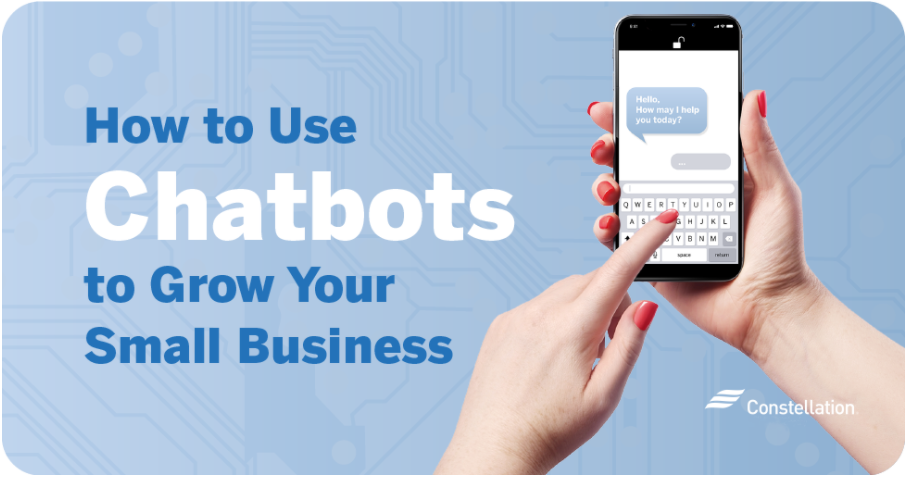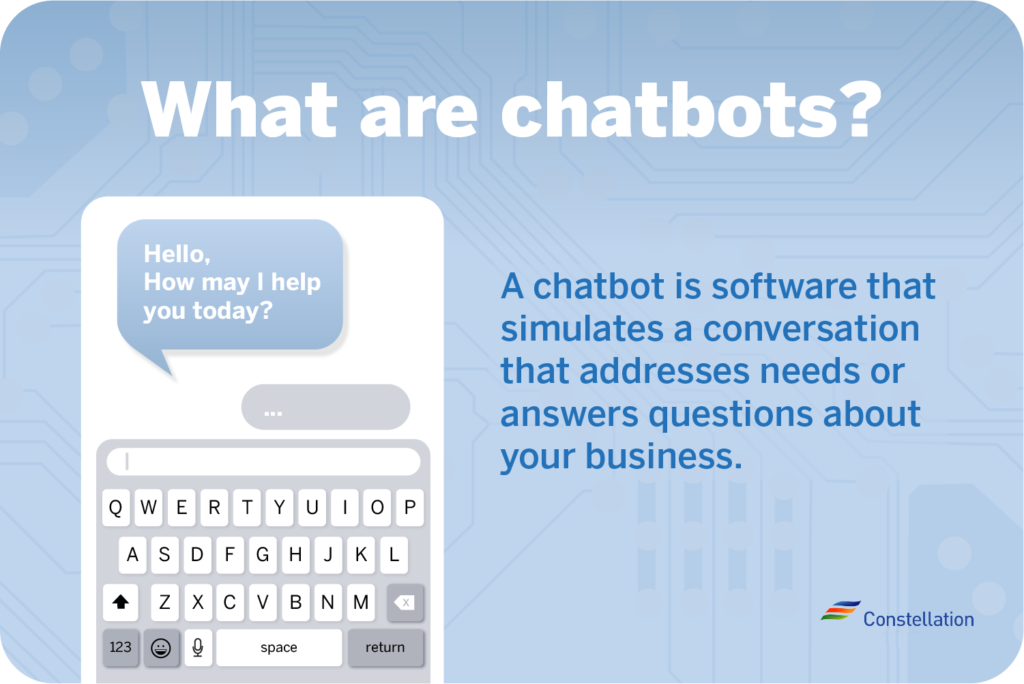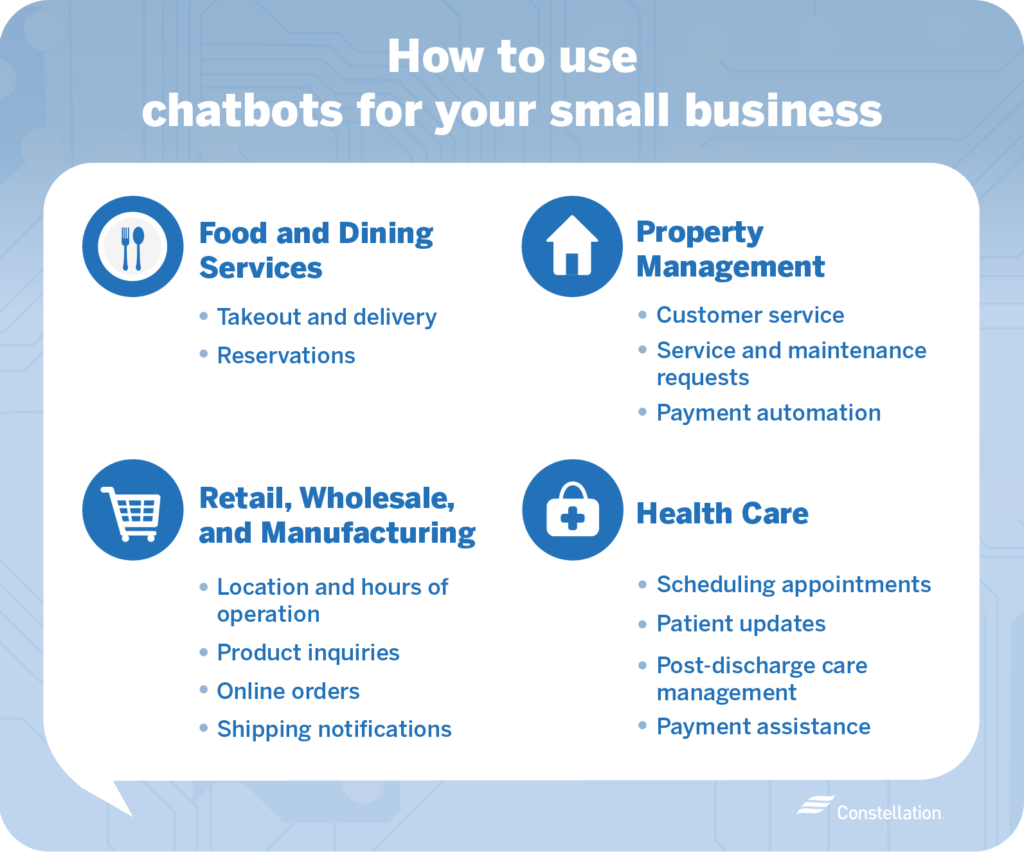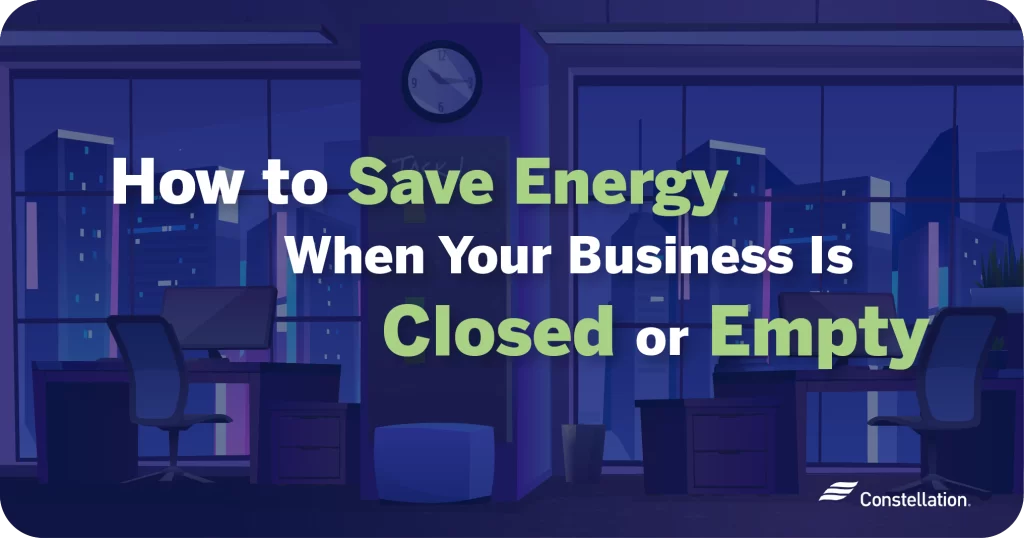
- Category:
Small Business Energy Savings -
Last updated:
February 22, 2022
How to Use Chatbots to Grow Your Small Business
Small-business chatbots are a business technology trend with tremendous promise. You can interact with and help your customers while cutting costs at the same time — and that translates into profits. Even better, this fast-evolving technology is becoming more powerful and easier to use all the time.
What are chatbots?

A chatbot is software that simulates a conversation. Small-business chatbots help you communicate with people who have needs and questions.
Simple chatbots run on scripted answers that are offered in response to common questions. More sophisticated chatbots use artificial intelligence to understand questions in context and then construct a helpful and relevant answer from stored knowledge, and they keep learning with every interaction.
Chatbots have been around for more than 20 years. The first chatbot was Eliza, created at the Massachusetts Institute of Technology in 1994. Eliza recognized keywords in questions and reacted with preprogrammed responses.
Today, we have commercially available chatbots that “understand” natural language (how people really talk) and then respond in relevant humanlike ways. Artificial intelligence and machine learning give apps a constantly improving understanding of human questions. Chatbots for small businesses are very much like smart assistants and smart speakers.
Most chatbots use text platforms like WeChat, Viber, WhatsApp, and even Facebook Messenger. Voice-based chat boxes are where innovation is heading. The new technology is evolving to the point where simulated conversations are becoming real.
10 reasons you should use chatbots for your small business
There are numerous benefits of small-business chatbots , which are driving the adoption of the upgraded technology. Sophisticated chatbot packages may come with a significant price tag, but they’re often worth it and, for the money, could be today’s best technology for small businesses.
Why use chatbots for your small business? Because you can benefit from the following:
- Answer simple questions that customers ask. Chatbots engage with potential customers, facilitating a purchase by helping them understand products and benefits. Chatbots can also help create happy and loyal customers that recommend your business to others.
- Track customer queries with analytics. Chatbots record details about their interactions. That data is invaluable for analytics, giving you insight into what customers are looking for. You can beef up your website, sales materials and promotional programs with this knowledge.
- Free up your team to focus on tasks. Chatbots free up your employees to do other valuable work. When they aren’t interrupted by repetitive customer questions so often, they can better focus on key tasks.
- Provide customer support during off-hours. Chatbots are on the job around the clock whenever your customers need them. They don’t need breaks, and they don’t go home after their shift. What’s more, you don’t need to keep the lights on or run the heat or air conditioning, leading to even more savings.
- Use helpful app integration. Chatbots are easier to use than ever. Small-business chatbots integrate with common text instant messaging platforms like Facebook Messenger. They can be easily set up and customized.
- Facilitate selling. Reach every website visitor to increase engagement that can create a lead. Experiment with a generic “May I help you?” invitation or be more specific: “May I answer your questions about [fill in the blank] feature?” Add chatbots to your promotional emails and ad landing pages. Use them to suggest and push relevant content to visitors.
- Provide lead data. Chatbots gather useful data as part of their interaction with a prospect in order to provide a rich lead to your sales team.
- Engage visitors and customers. The more people interact with your brand, the more likely they are to buy. A helpful chat is the perfect way to engage.
- Handle payments. Initiate and complete transactions. With secured and authenticated billing information, your chatbot can simply ask, “Can I bill your account for these items?”
- Streamline internal processes. Chatbots can help more than just your customers, with features that even your employees can benefit from. Your business could use chatbots to connect and coordinate with vendors, help with HR scheduling time off and sick days, or managing equipment maintenance.
How to use chatbots for your small business
How to use chatbots by industry:
Food and dining services
Property management
Retail, manufacturing and wholesale
Health care
What can this technology do for your business? Think about where to use chatbots and how to use chatbots. And when implementing them, make it clear to your customers that they’re not talking to a real person. Transparency leads to trust.
Given the many benefits, it’s no wonder that so many businesses have begun using small-business chatbots. And aside from their more general usefulness, specific industries have tailored their application of this technology in innovative ways.
Food and dining services
Chatbots can be a helpful host or attentive waiter, with applications that work on desktops, phones and even at the table.
Takeout and delivery
Make online ordering for takeout or delivery more engaging than clicking a menu. Chatbots help visitors order food and can suggest sides, drinks and desserts. They can promote a special and keep customers coming back with incentives at the end of the chat.
Reservations
Make reservations easy and on brand with a chatbot that offers a warm interaction and handles the special requests that give your staff a chance to wow a guest.
Property management
Property management is a high-touch business, but one with repetitive requests and interactions. It’s a natural place for chatbots.
Customer service
Working like a virtual assistant, a chatbot can let tenants know about packages and deliveries, building meetings and events, and can also help with discussing rental information and lease details.
Service and maintenance requests
Chatbots can take in tenant problem reports, log complaints, track repairs and follow up to let tenants know the problem is fixed.
Payment automation
Chatbots make paying rent easy — no more mailing bills and collecting checks. Tenants can pay over an existing payment platform or directly by bank transfer or credit card.
Retail, manufacturing and wholesale
Retailers, manufacturers and middlemen wholesalers are using chatbots for a host of communications — not just with customers. Chatbots help in communicating with vendors, maintenance and service providers, and employees.
Location and hours of operation
For retailers, chatbots can assist customers in finding out when stores are open and where they can find a store. Wholesalers and manufacturers can use the same technology to coordinate shipping and receiving.
Product inquiries
Small-business chatbots can help you scale, providing instant help to customers and vendors alike with questions about product features and benefits, availability and prices.
Online orders
Chatbots create a natural and simple way for customers to place online orders without clicking boxes and filling out forms. They guide customers through an easier, more helpful and pleasant experience.
Shipping notifications
Chatbots keep your customers and vendors up to date on the status of orders, where items are and when delivery can be expected.
Health care
Chatbots can help healthcare practitioners improve the patient experience and outcomes. Their ability to streamline communication can translate to a savings of 15% to 20% of operational costs.
Scheduling appointments
Chatbots can schedule appointments and coordinate tests, making this task less tedious and time-consuming for both patients and staff.
Patient updates
Chatbots for healthcare practices make it easier for patients to report weight, other vital signs, current medications and vaccination history with doctors. They can also answer patients’ common questions.
Post-discharge care management
Following up with patients can be effectively done with a chatbot that knows the right questions and can also answer the most common patient questions. Communicating on the web or via text is a better way to provide information than a hard-to-remember phone call.
Payment assistance
The ability of chatbots to accept payments eliminates cumbersome billing and waiting for check payments.
The original idea of using chatbots for small businesses centered around customer service and answering basic customer questions. As the technology has expanded with artificial intelligence, the ability to take and process payments securely, and applications beyond websites, the possibilities of where to use chatbots and how to use chatbots seem boundless. It’s definitely worth your while to keep an eye out for small-business chatbot applications that can benefit your company.





